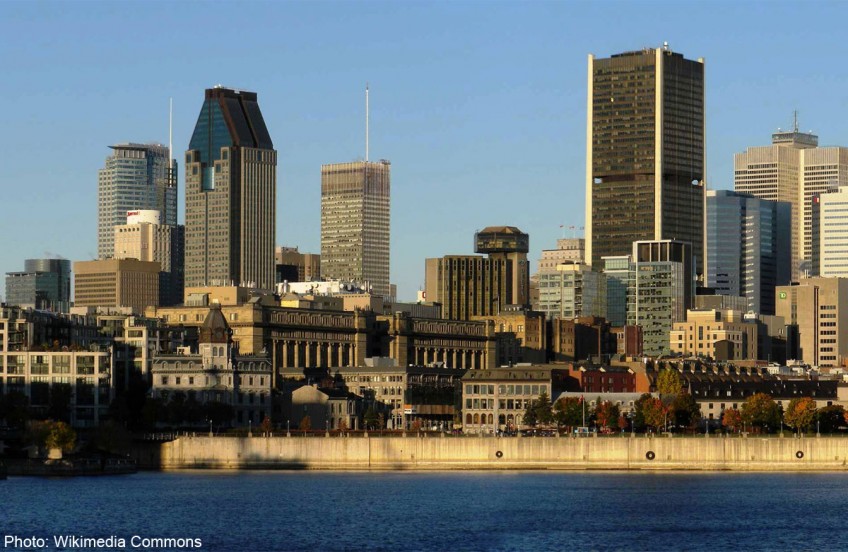Torn between two cultural identities

When anyone asks me, "Where are you from?" I always hesitate. I have two cultural identities and whenever I say one, I feel I'm betraying the other.
I come from Canada, a country that prides itself on its multiculturalism. Yet attitudes towards other cultures are met with a need for distance and a need to differentiate.
My experience with the two cultures started long before I was born. My parents were born, raised and lived most of their lives in the capital of the former Yugoslavia, Belgrade.
In 1990, my mother was an obstetrician at a city hospital, my father worked as a mechanical engineer, and my sister had celebrated her first birthday. Although my parents grew up in a socialist country, they never felt they had any opportunity taken away from them, or that they were systemically unfairly treated. That was the kind of socialism that Josip Broz Tito, the head of state, cultivated for the country.
After his death in 1980, Yugoslavia struggled politically, economically and ideologically. As unemployment rose, the multi-ethnic and religious groups within the country started to turn against one another. And as protests became more frequent and politicians incited ethnic pride, my father turned westward, towards Canada. My mother agreed reluctantly to leave, and by 1992, my family had settled in Canada.
The following year, I became the first in my family to be born on North American soil.
In their new country, my parents struggled financially. My father did manual jobs while trying to improve his English so he could provide for my mother, sister and me. My mother's medical degree meant nothing in Canada unless she re-sat all the exams - in English.
But they couldn't go back - Yugoslavia had slipped into a violent civil war.
Although my parents struggled, I always had more than enough in every area of my life. But even as a child, in regard to my identity, I was confused.
Until I went to kindergarten, the only language I knew was Serbian. I didn't understand why, when speaking to other children my age, nobody understood me.
Later on, I was able to speak both Serbian and English, but sometimes I would still get confused between the two.
As the war in the country they'd left progressively got worse, my parents took me to protests I didn't understand. I would see them stare intently at the television when the news was on. All I knew was that the borders of Yugoslavia kept changing, and I wouldn't see my extended family for a long time.
My formative years were spent constantly contradicting my two cultures. I loved being able to speak another language and learn about my heritage, but I would be embarrassed when my parents or grandparents couldn't speak English like everyone else.
For a long time I felt my two cultural identities clashed. I was too Serbian for Canadians and too Canadian for Serbians.
Moving to Toronto helped me better understand how to relate one identity with the other. Half the residents of Toronto were born outside Canada. Seeing others fuse their identities helped me understand how to do the same.
I met recent immigrants who tried to hide or disengage from the country they had left. Others had spent two-thirds of their life in Canada, yet exclaimed that they would never be truly Canadian.
Attitudes towards different cultures in Canada have made people either fiercely defensive of the country of their birth or made them give it up entirely. It is a result of assimilation and also struggling with a new multi-ethnic identity.
Since the beginning of this year I've been in Singapore on a study- abroad programme with my university.
When people ask where I'm from, I say happily I'm Canadian, but I still feel I should also say that I'm Serbian.
Most people I've met in Singapore don't know where Serbia is, and that's okay. I've seen it as an opportunity to tell them about a rich culture, without having their first impression be of a country that was involved in the deadliest war since World War II.
Here in Singapore, a land made up mostly of migrants, with an array of cultures and religions, I've felt I could add what I have always regarded as my family's story.
Being here on my own has made me realise that it is my story too, and I'm proud of it.
The writer, Marija Petrovic is a third-year journalism student at Ryerson University, and has just completed an overseas exchange programme at the Wee Kim Wee School of Communication and Information at Nanyang Technological University.
This article was published on May 11 in The Straits Times.
Get a copy of The Straits Times or go to straitstimes.com for more stories.